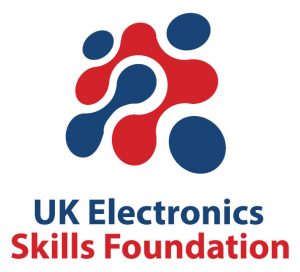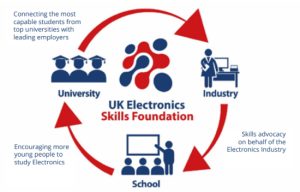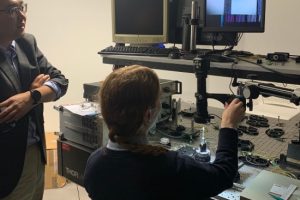Specifically, it sought to assess the technical and non-technical skills of Electronics graduates entering the industry, and also understand their work readiness.
Electronics graduates
For its report the UKESF conducted a focus group with representatives from industry, combined with a survey of the industry and electronics graduates.
 “Through an in-depth focus group with employers, and a survey with both employers and graduates, we explored whether graduates have the expected technical and non-technical skills sought by employers,” writes the CEO of UKESF, Stewart Edmondson.
“Through an in-depth focus group with employers, and a survey with both employers and graduates, we explored whether graduates have the expected technical and non-technical skills sought by employers,” writes the CEO of UKESF, Stewart Edmondson.
“Our research found that although some of the results are mixed, the picture for Electronics graduates is reassuring given the concerns raised in other reports.”
Findings
Among its findings, from the online surveys, were the headline figure that 82% of employers reported that “the technical knowledge of the recent Electronics graduates they had recruited met, or exceeded, their expectations”. Conversely, 86% of graduates felt their technical knowledge met or exceeded expectations.
In terms of non-technical skills, employers reported that the skills demonstrated by their graduates varied significantly depending on the skill itself. For example, while 96% of employers felt graduates “were curious, asking questions that showed a desire to understand the detail of their work”, only 54% of employers felt the graduates had “a good or reasonable understanding of business operations”.
This figure worsened when only 43% employers agreed that the graduates had “a good or reasonable knowledge about the business world in which the company operates”. For their part, 54% of graduates thought they did.
The worst finding was that only 39% of employees thought graduates “took responsibility for the progression of their work tasks from the outset” albeit that 63% of the graduates thought they did.
More positively, 83% of employers agreed that “graduates were either self-reliant and able to manage the transition to their new work environment, or showed independence but needed time to feel comfortable” (93% of graduates thought this was the case).
Also, 65% of employers agreed that graduates “were very curious, asking questions that showed an eagerness to understand the detail of their work and how it fit into the company context” (59% of graduates thought this was the case).
Finally, 81% of the graduates surveyed had completed an industry placement as an undergraduate. This is significant, highlighted the UKESF, and highlights the importance of completing work placements.
You can read the full report on the UKESF website.
UKESF
 The UK Electronics Skills Foundation is an educational charity established in 2010.
The UK Electronics Skills Foundation is an educational charity established in 2010.
It works to tackle the national skills shortage in the Electronics sector – it operates collaboratively with major companies and leading universities. The UKESF also undertakes outreach and engagement activities to ensure that more schoolchildren are aware of Electronics and the opportunities available in the industry.
Its award-winning Scholarship Scheme gives undergraduates the opportunity to gain work experience though their degree, supporting them to develop work ready skills. Employers also benefit from the chance to engage with capable, motivated undergraduates and establish an effective pipeline for graduate recruitment.
See also: UKESF, Apple strengthen ‘Girls into Electronics’ partnership
 Electronics Weekly Electronics Design & Components Tech News
Electronics Weekly Electronics Design & Components Tech News


